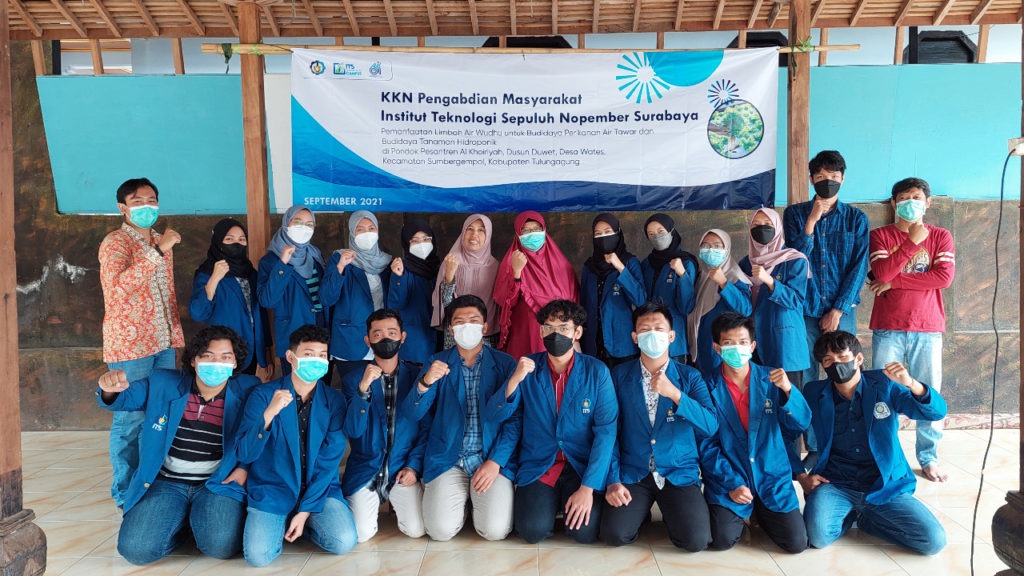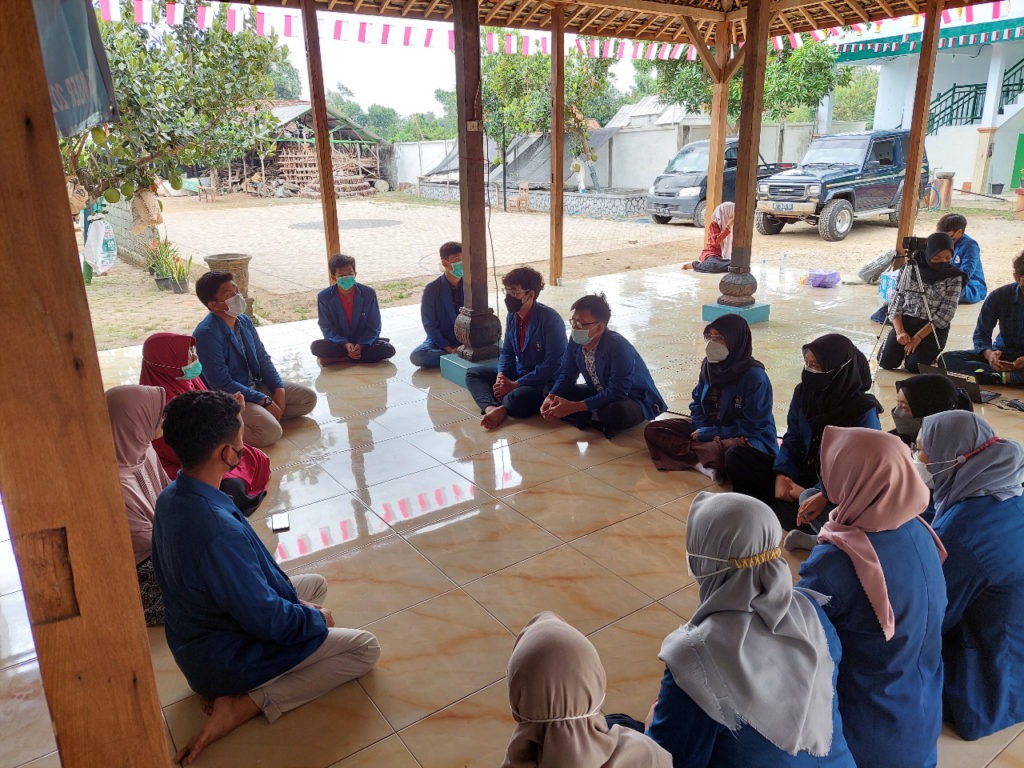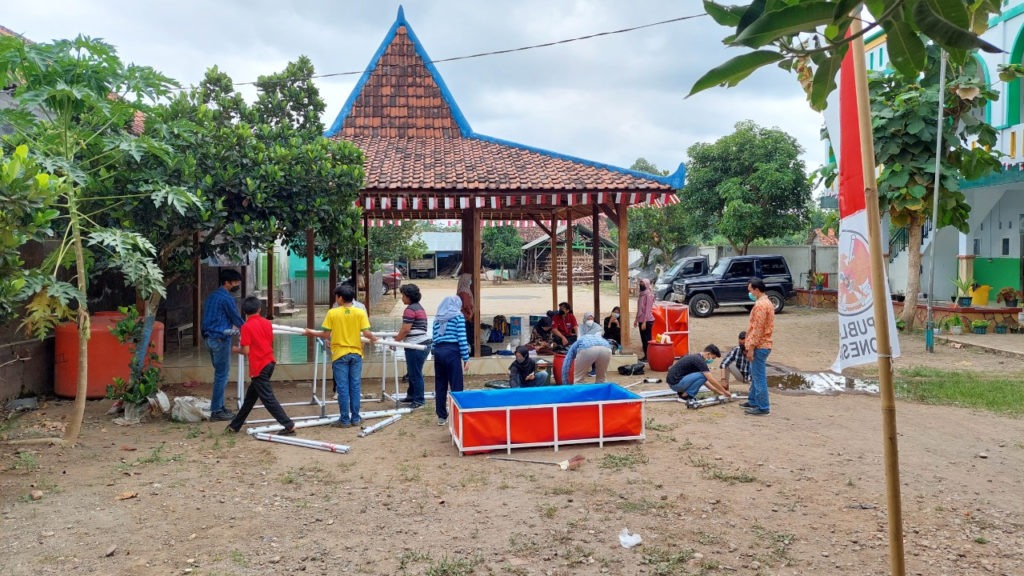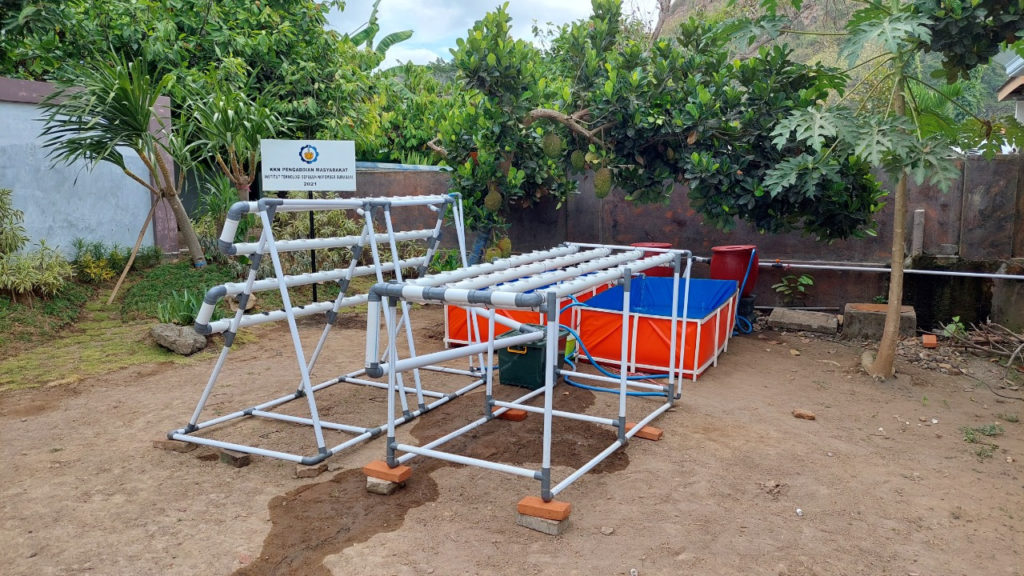Utilizing Ablution Wastewater for Aquaculture and Hydroponics

The ITS Abmas KKN team with the management of the Al Khoiriyah Islamic Boarding School in Tulungangung Regency after the closing of the KKN and handing over of equipment
ITS Campus, ITS News – Water that has been used for ablution for the Muslim community, can still be used for other things. As done by 25 students of the Institut Teknologi Sepuluh Nopember (ITS) who are members of the Community Service Real Work Lecture (KKN Abmas) team who have succeeded in utilizing ablution water waste for freshwater aquaculture and hydroponic plant cultivation.
Yoga Fredi Arisko, the team leader, said that the KKN Abmas conducted by his team took place at the Al Khoiriyah Islamic Boarding School, Duwet, Wates Village Sumbergempol District, Tulungagung Regency. He explained that the purpose of using ablution water waste was to avoid wasting ablution water, which was still apparent when compared to household water waste.
According to Yoga, we can still use the ablution water waste for other needs, such as filling fish ponds and cultivating hydroponic plants. “It is regrettable if (wastewater for ablution) was thrown away,” he said.

The ITS Abmas KKN team during the opening of the activity with representatives of the Al Khoiriyah Islamic Boarding School, Tulungagung
The student from the Department of System and Industrial Engineering continued, the use of ablution water waste began by storing water in a 250-liter capacity reservoir. Then, the water from the pool will be flowed to a simple water purifier to be cleaned first.
Yoga revealed that the simple purification device created by his team is made of two 50 liter water buckets filled with lime and paranet as the filter composition. After going through the purification process, he continued, the tools will channel the ablution water waste to fill the fish pond in the pesantren before being directed to hydroponic plants.
Yoga said that the mechanism of the equipment used from the purification stage to the hydroponic plants is a closed system. According to him, this allows for a more efficient use because the ablution water waste will continue to rotate in the three components, so there is no need to bother changing the water every day. “The water is replaced every 1-2 weeks when draining the fish pond or when it feels dirty,” he explained.

The assembly process for using ablution water waste for aquaculture and hydroponics was carried out by the ITS KKN Abmas team in Tulungangung Regency.
In addition to its efficient and practical use of reducing excess water disposal, Yoga claims that the tools made by his team are also of economic value. He said, since the purification stage, his team has avoided using electricity so that it doesn’t have to incur high costs.
The Al Khoiriyah Islamic Boarding School can also save water use when filling its fish pond. Meanwhile, the Islamic boarding school also does not need to incur additional costs for vitamins for cultivated hydroponic plants because the water used already contains nutrients from fish ponds.

The tools that utilize ablution wastewater created by the ITS student team in KKN Abmas in Tulungagung Regency
Furthermore, the hydroponic crops can also be used for consumption by Islamic boarding schools or sold for a total of more than 100 plants per harvest. Yoga added that the tools made can also be used as outdoor learning media by the Islamic boarding school. “It is hoped that this tool can also be used as an educational material for fish and vegetable cultivation,” he added.
Despite going through a long process since the beginning of last September, this 2019 batch of students were happy, especially with the enthusiasm of the residents of the Islamic boarding school. By only utilizing a 25-meter long pipe, Yoga is relieved that his team’s hard work in designing and completing eight days of device assembly has been very well received. “Hopefully, in the future, the tools created by our team can last a long time, so they can continue to be used,” he said hopefully. (nadh/ITS Public Relations)
Reporter: Zanubiya Arifah Khofsoh
Related News
-
ITS Ranks as the Best University in Marketing in Indonesia
ITS Campus, ITS News — Continuously striving to meet industry needs has successfully brought Institut Teknologi Sepuluh Nopember (ITS)
October 05, 2021 21:10 -
ITS Academic Staff Initiates Work Safety Revolution through Digital Technology
ITS Campus, ITS News — Based on existing report data, 17 kinds of accidents mostly occur due to the lack
October 05, 2021 21:10 -
ITS Collaboration with BPBD East Java, Launching VR Disaster Simulation
ITS Campus, ITS News — Supporting anticipation of disasters and continuing to educate the public, Institut Teknologi Sepuluh Nopember
October 05, 2021 21:10 -
Supporting the Implementation of Innovative Ideas, ITS and IYSA Hold International Competition
ITS Campus, ITS News — Institut Teknologi Sepuluh Nopember (ITS) has once again proven its commitment to supporting the
October 05, 2021 21:10
